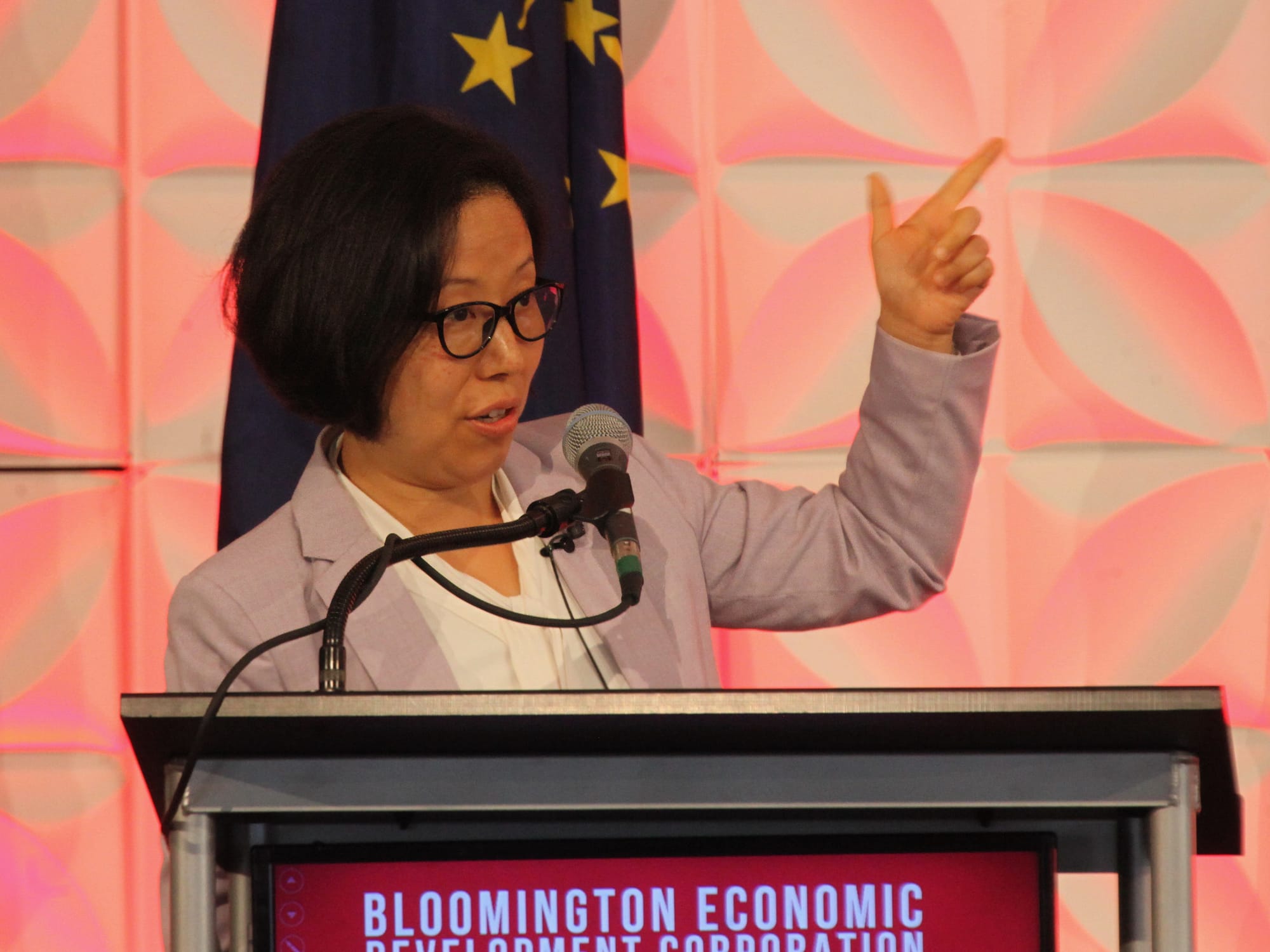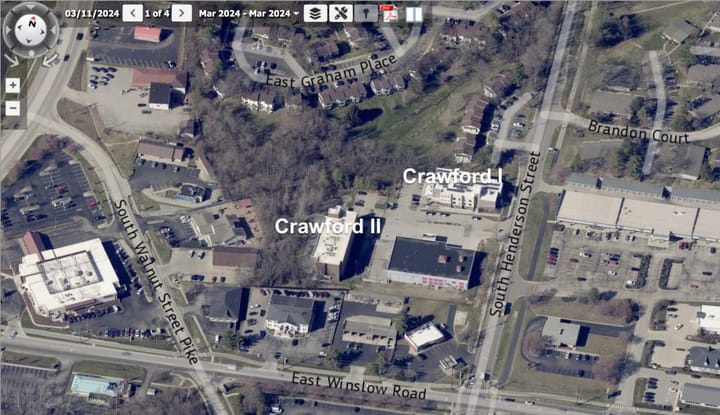IU economist says Bloomington should hear the alarm bells, but 'fire department' is coming
Phil Powell, Indiana University professor of business economics, led off remarks on Wednesday with three statistics that he called alarm bells: low labor productivity, shifting demographics, and high housing costs.




Phil Powell, Indiana University professor of business economics: "I want you to listen. Do you hear those economic alarm bells sounding in Bloomington? If you don't, I'm going to give you three statistics that are going to wake up your ears." (Dave Askins, June 18, 2025)
"I want you to listen. Do you hear those economic alarm bells sounding in Bloomington? If you don't, I'm going to give you three statistics that are going to wake up your ears."
That's how Phil Powell, Indiana University professor of business economics, led off his remarks at a Wednesday lunch hosted by the Bloomington Economic Development Corporation. Powell continued with his three statistics:
The first was Bloomington's minimal growth in labor productivity—just 1.7% between 2017 and 2022, compared to a statewide productivity improvement of 8%. While Bloomington's number dragged down the statewide average, cities like Kokomo, with its 31% increase in productivity and Columbus, with its 12% increase, served to boost Indiana's statewide number to a full point better than the nationwide average.
Productivity, Powell said, is connected to wages: "Hard working folks here in Monroe County don't make what other workers make around the state. In order for wages to go up, productivity has to go up. … Companies aren't going to pay their workers more until they're more productive.".
The second key statistic that Powell wanted the audience to hear was related to the demographic shift. Monroe County has seen a 7.7% decline in residents aged 25 to 44 since 2019, Powell said. He called that group "the vibrant workforce that could fuel Bloomington's future." But people in that age group are choosing to leave Monroe County.
The reason that 25-to-44-year-olds are leaving was the third key statistic that Powell cited: housing costs. Local housing prices average $200 per square foot—33% higher than the state's $150 average, Powell said.
Still, Powell saw room for optimism, saying that if those statistics were the alarm signalling that the economy was burning down, then there is a "robust fire department" that is coming. As the "fire department" Powell pointed first to Indiana University president Pamela Whitten, calling her the first IU leader in his 28 years at the university to make public service and economic development a top priority.
Powell credits Whitten with putting $250 million into life sciences and microelectronics—two sectors he says will drive Indiana's future. That investment, he says, isn't just academic talk, but a real shift in how the university engages with the community and the state.
He also praised local political leaders, saying that for the first time in a few decades, Bloomington's region has mayors who are "truly pro-growth." Bloomington mayor Kerry Thomson attended the gathering, which was held in the Bloomington Convention Center. Powell pointed to the expansion of the convention center as part of the solution: "This convention center it's going to be bigger, thank god!"
Also a part of Powell's fire department is business leadership. He pointed to recent progress in the development of the Trades District under former Bloomington mayor John Fernandez. Powell also pointed to the arrival of companies like Novo Nordisk and Simtra, which he said will help Bloomington find a place in global supply chains.
Powell called for recruiting six high-profile companies from outside the region in industries like life sciences and semiconductors. That, Powell said, would help Bloomington tell a new story. "...It establishes a new narrative, and not a narrative of where we've been, but a narrative of where we can go."
Also addressing the event on Wednesday were Eric Starks with FTR Transportation Intelligence and Matt Eckerle with Baker Tilly Municipal Advisors. All three speakers participated in a discussion moderated by Ting Gootee, who is president and CEO of TechPoint.
Giving introductory remarks were Jennifer Pearl, president of the BEDC, and Tyce Carmichael, Weddle Brothers Construction Companies, who is chair of the BEDC board.
The event was recorded by CATS.



Left: Ting Gootee, president and CEO of TechPoint. Middle: Matt Eckerle with Baker Tilly Municipal Advisors. Right: Eric Starks with FTR Transportation Intelligence (Dave Askins, June 18, 2025)




Comments ()